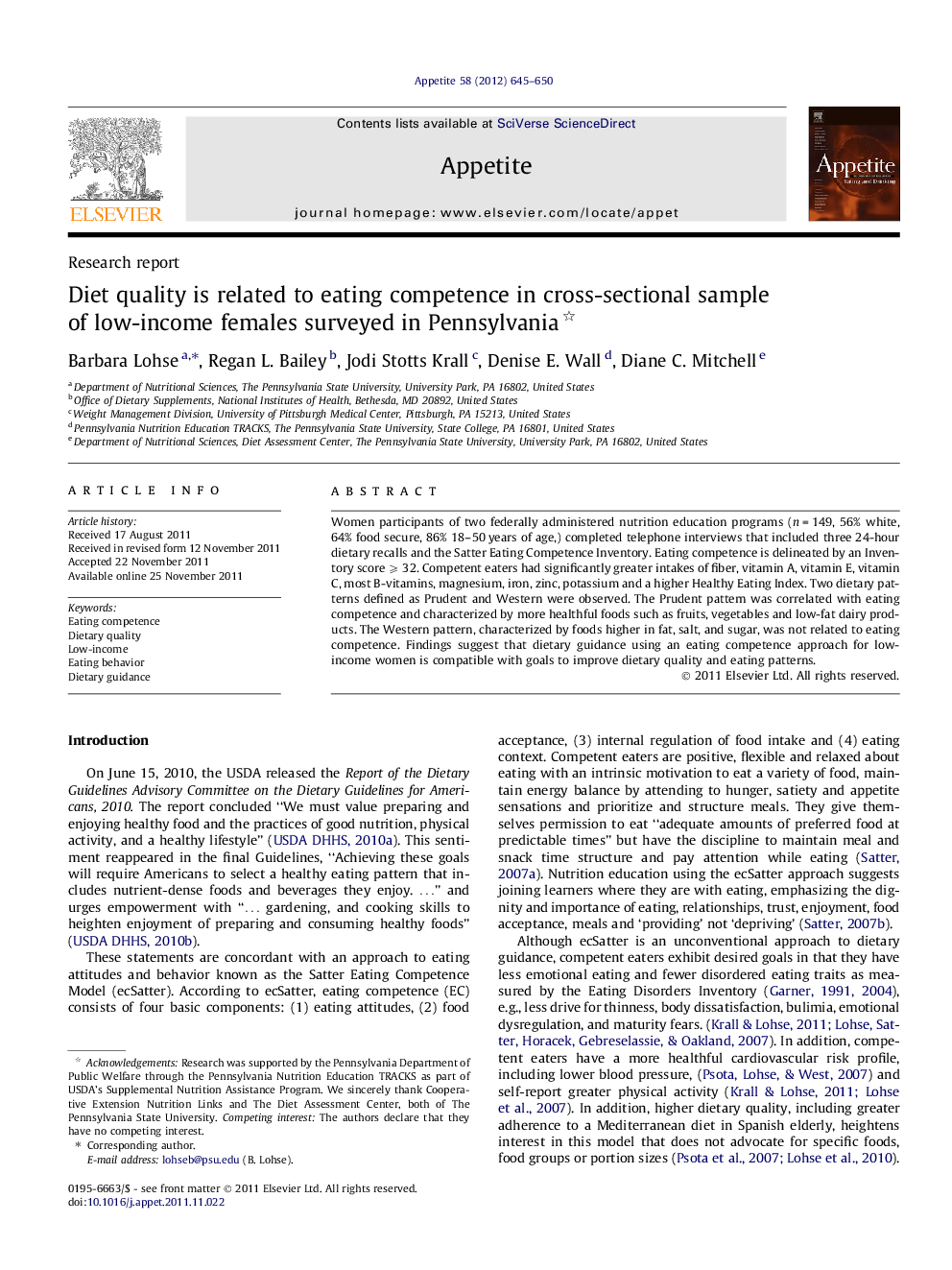| Article ID | Journal | Published Year | Pages | File Type |
|---|---|---|---|---|
| 940523 | Appetite | 2012 | 6 Pages |
Women participants of two federally administered nutrition education programs (n = 149, 56% white, 64% food secure, 86% 18–50 years of age,) completed telephone interviews that included three 24-hour dietary recalls and the Satter Eating Competence Inventory. Eating competence is delineated by an Inventory score ⩾ 32. Competent eaters had significantly greater intakes of fiber, vitamin A, vitamin E, vitamin C, most B-vitamins, magnesium, iron, zinc, potassium and a higher Healthy Eating Index. Two dietary patterns defined as Prudent and Western were observed. The Prudent pattern was correlated with eating competence and characterized by more healthful foods such as fruits, vegetables and low-fat dairy products. The Western pattern, characterized by foods higher in fat, salt, and sugar, was not related to eating competence. Findings suggest that dietary guidance using an eating competence approach for low-income women is compatible with goals to improve dietary quality and eating patterns.
► Diet intake assessed with three, 24-hour recalls to compare to eating competence scores. ► Competent eaters consumed more fiber, vitamins, minerals and HEI score was higher. ► Eating competence correlated with a Prudent, rather than Western dietary pattern. ► Findings support dietary guidance using eating competence to improve diet quality.
